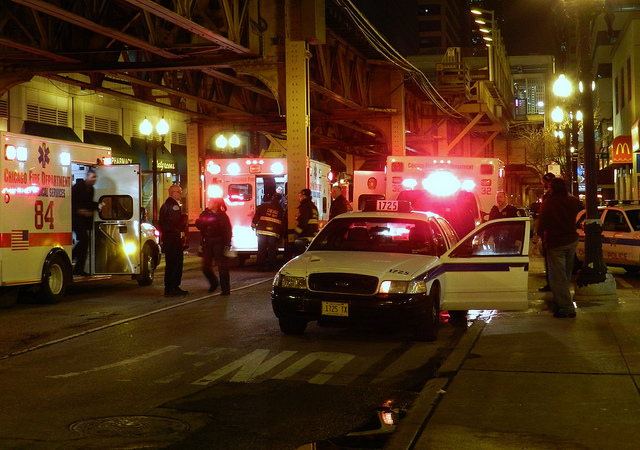Homicides Spike In First Three Months Of 2012
By Chuck Sudo in News on Apr 12, 2012 1:50PM
The homicide rate in Chicago has increased by 60 percent in first three months of 2012, and police and criminologists are citing different factors for the spike in murders.
The Police Department is laying the blame on increased gang activity, which has Mayor Emanuel pressuring the Illinois General Assembly to pass legislation that allows law enforcement agencies to target gangs with racketeering charges similar to federal RICO laws. A bill has already passed the Illinois House while a similar bill is waiting to be voted on in the State Senate.
In a letter to State Senate President John Cullerton, Emanuel wrote:
“We cannot fight criminal gang violence alone and need additional tools to go after gangs in our city and throughout Illinois."
If passed, the legislation would allow racketeering prosecutions of anyone directly or indirectly in gang activity through violent crimes, gun and drug crimes or collection of illegal debts. Convictions under the law would carry prison sentences ranging from 10-20 years and fines of up to $250,000.
Chicago Police are implementing new strategies to combat gang violence, gathering more intelligence and issuing what are known as "flash messages" to officers on the street if they suspect gang retaliation.
Criminologists are also citing Chicago's unseasonably mild weather for the increase in homicides, using the theory that since it's warmer, more people are stepping outside. Police Supt. Garry McCarthy dismissed that theory.
120 homicides were reported between Jan. 1 and April 1 this year, compared to 75 during the same time frame last year. Englewood has seen the largest increase in homicides and McCarthy has sent more police there and in the Harrison District on the West side of the city to help out in what he calls "combat zones."
Non-fatal shootings also increased in the first quarter by 37 percent, while other major crime rates fell, including significant decreases in sexual assaults and burglaries.
